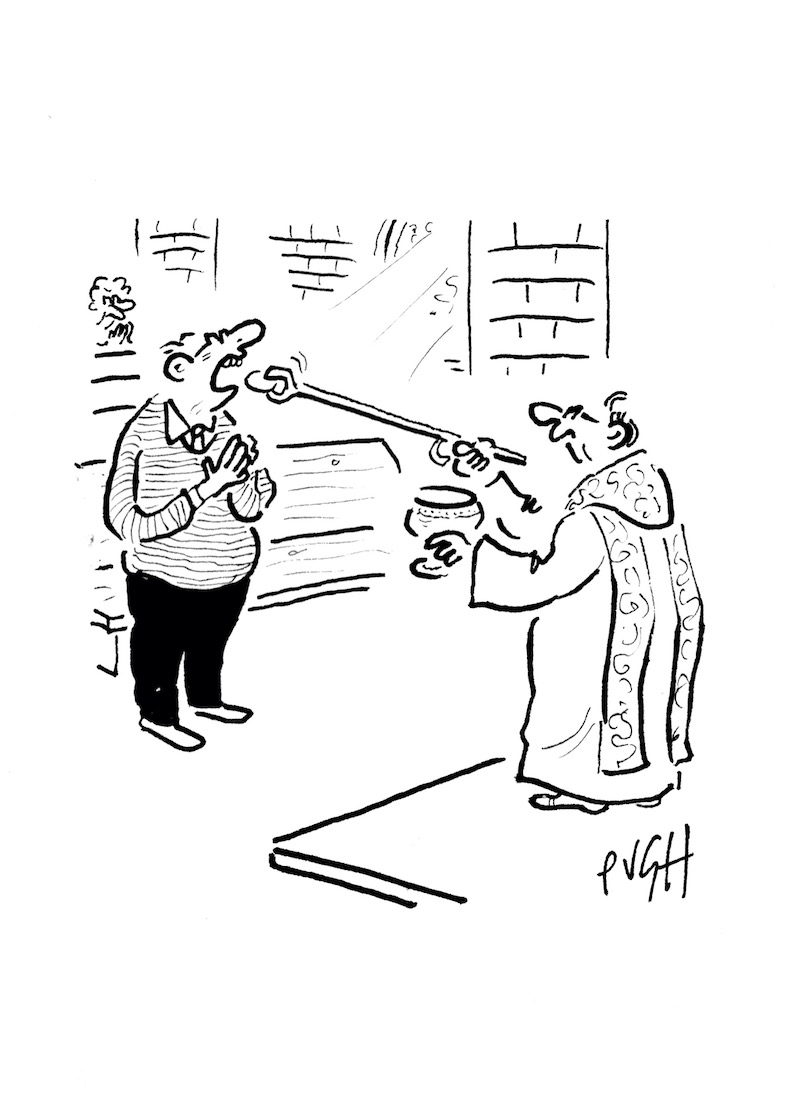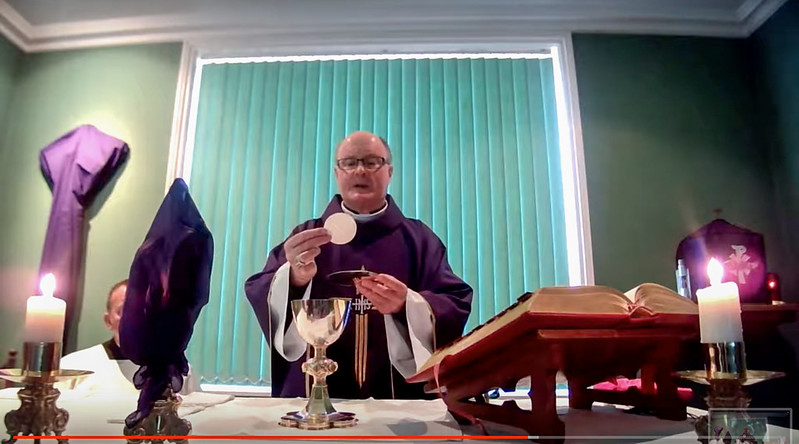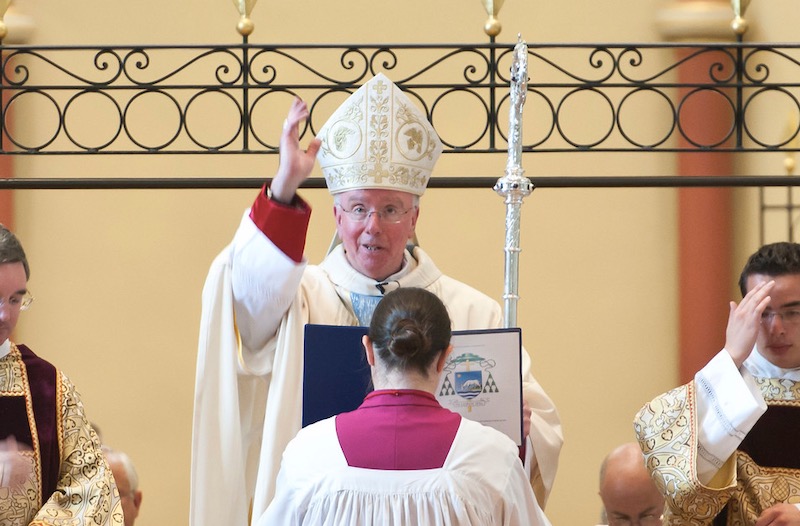The Bishops’ Conference of England and Wales has said it is down to individual bishops to decide whether or not a priest in their diocese can distribute Communion on the tongue during the pandemic, after a priest in Oxford refused to distribute Communion at all because conference guidelines “make it difficult to receive Our Lord with reverence”.
Official guidelines issued by the bishops’ conference and based on government advice state that Communion should be distributed in silence, and on the hand. Confusion has arisen over breaches of this guidance, with a number of parishes continuing to distribute Communion on the tongue, particularly during celebrations of the Traditional Latin Mass.
This week a spokesperson for the bishops’ conference told The Tablet that the guidelines are applicable to all dioceses where Mass can be celebrated publicly. “Bishops are strongly recommended to adopt the guidance but bishops have the right to act as they see fit in their own diocese and to accept the consequences of their actions,” the spokesperson said.
In Portsmouth, for example, Bishop Philip Egan appears to have given priests permission to distribute Communion on the tongue. At the Bournemouth Oratory, in the Diocese of Portsmouth, this takes place after Mass has finished.

The Bishops’ Conference spokesperson said: “Government guidance, applicable to all faiths, states: ‘The person distributing the consumable should release it, into the hand only, in such a way to avoid any contact between them and those receiving it or wear gloves. If accidental contact does occur, both people should cleanse their hands immediately.
“This government guidance is based on the public health under- standing of viral transmission and for this reason priests are strongly advised not to give Communion on the tongue. The bishops’ conference has no power to take action if these guidelines are not followed. This would be a matter for the local diocesan bishop.”
The Conference's clarification comes as the Bishop of Nottingham, Patrick McKinney, responded to allegations that he had threatened to suspend priests who distributed Communion on the tongue. Bishop McKinney told The Tablet that he had "done no such thing."
"Like other bishops of the Bishops' Conference of England and Wales I have followed the Government guidance concerning the safe distribution of Holy Communion during this time of the coronavirus, namely that Communion is to be given hand to hand only and that social distancing is to be maintained with people moving into this space," he said.
"Because I was sensitive to the fact that some parishioners might well be upset that they couldn't receive on the tongue, in spite of government guidance, I wrote to all priests asking them to emphasise to parishioners 'that this is only a necessary temporary emergency measure and that, as soon as it is possible, we will revert to our usual canonical practice of offering people the choice of receiving Holy Communion either on the hand or the tongue."
Earlier this week Dr Joseph Shaw, chairman of the Latin Mass Society, said that he doubted bishops would take the unusual step of ruling on this issue for their diocese. Were they to do so, he said, they must be mindful of the rights of priests and faithful.
“The faithful may not be refused Holy Communion just because they wish to receive on the tongue,” he said. “Priests may decline to distribute in the hand if there is risk of profanation. Priests may decline to offer any of the Sacraments when it is inopportune to offer them. These rights are granted by the universal law of the Church and cannot be taken away by bishops.”
His comments came as the Archdiocese of Birmingham said it had entered into “fraternal dialogue” with a priest who told parishioners to “wait a little longer before receiving Holy Communion. The health and safety regulations for public Masses make it difficult to receive Our Lord with reverence.”
The Archdiocese of Birmingham denied that its guidelines are irreverent, and said that actions by Fr John Saward at the celebration of Sunday Mass at the church of SS Gregory and Augustine in Oxford on 5 July “are the subject of a fraternal dialogue at present with his diocesan superiors”.
The rules for Communion in Birmingham state: “Communion must be given silently in the hand only, with the communicant standing, and avoiding any physical contact.”
Fr Saward did not respond to a request for a comment, although his parish website states that live-streaming of Mass has now been suspended.
In a statement, the archdiocese told The Tablet: “We are not aware of any complaints made by any individuals directly with the Archdiocese or with Fr John Saward. In light of public health guidance, the Bishops’ Conference of England and Wales’ guidelines for the celebration of Public Mass have provided a safe and reverent, temporary means of distributing Holy Communion. Those guidelines are to be followed by all clergy in the Archdiocese of Birmingham at the celebration of Public Mass, without exception, until further notice.”
The guidelines advise clergy who are over 70 not to distribute Holy Communion at present but to arrange for another minister to do so on their behalf.



 Loading ...
Loading ...